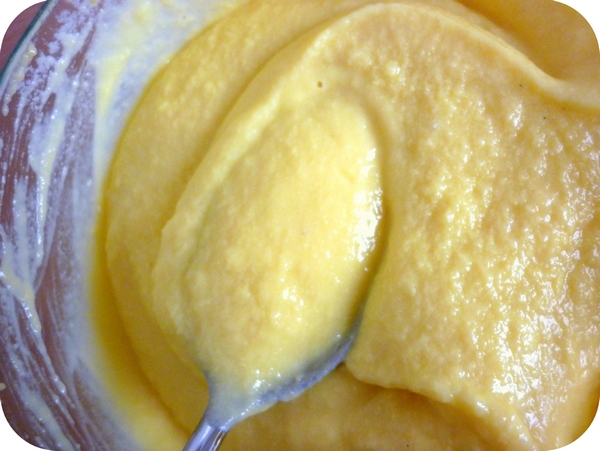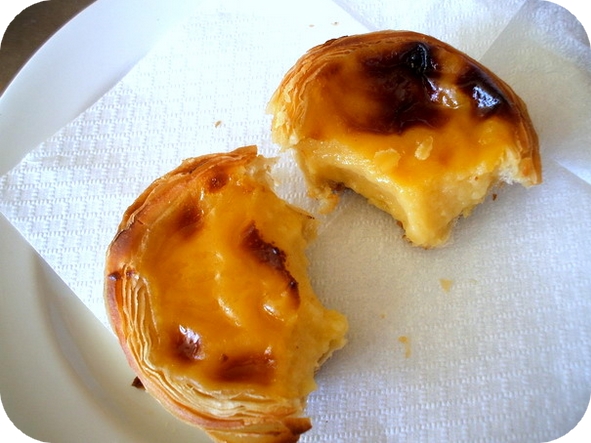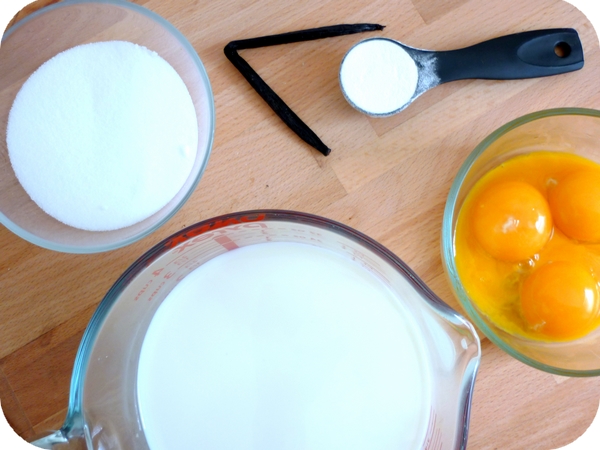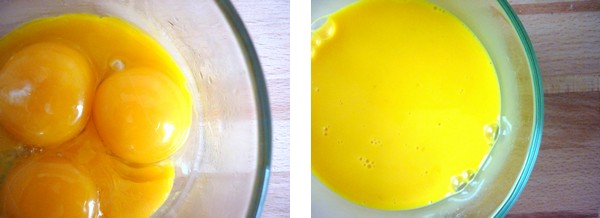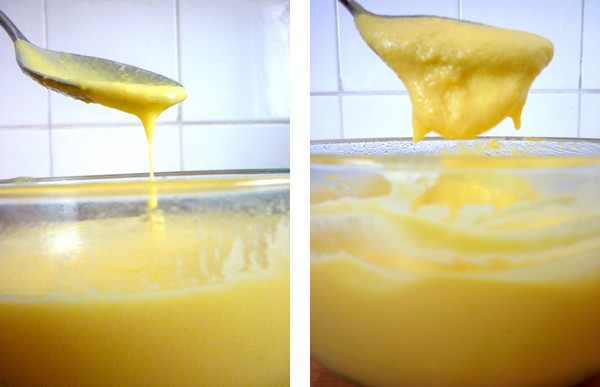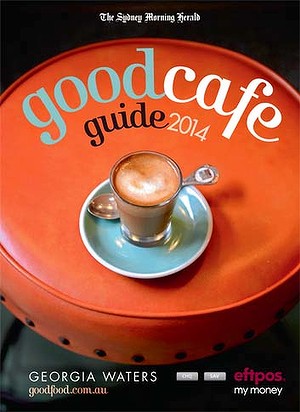Don’t tell my boyfriend, ‘cause he’ll just say ‘I told you so’- I didn’t really like custard until we went to Portugal. When it came to dessert, I was strictly a chocolate-something-served-with-lashings-of-whipped-cream kind of gal. I didn’t really understand the fascination with that sweet, thick, eggy goo. That was until I’d been to Belém and tried the famous tarts that have been made their since 1857. Fresh from the oven, rich, golden and irresistibly crunchy and sprinkled liberally with cinnamon. I still have dreams about them. Sigh.
No, I’m not going to give you a recipe for pasteis de nata (or as they’re known here, Portuguese custard tarts) for the simple reason that there is no way in hell I would ever attempt to make such a thing. For anyone who knows anything about pastry making, making pasties de nata is akin to making custard from scratch on top of making croissants. I ate one every day for breakfast (and many other meals) when I was in Portugal a few years ago, and I can tell you that no Portuguese person would ever make them either – not when you can buy them on practically every street corner for 60 euro cents each.
But what I do like to make, especially to use up any old egg yolks, is homemade custard. Now this may sound fiddly or possibly disastrous but let me assure you as someone with zero patience, it’s not. If the custard gets a bit lumpy, you can always strain it through a sieve, no big deal. And what’s more, it’s made with ingredients most people have on hand. It can be eaten warm or cold, sprinkled with cinnamon and sugar and baked or used as a filling for or accompaniment to various desserts. And what makes it Portuguese? Probably just the sheer number of egg yolks used…
Rich Portuguese Custard (from ‘The Taste of Portugal’ by Edite Vieira)
600ml full cream milk
4-6 egg yolks (I used 4)
1 Tablespoon plain flour
140g caster suger
1 strip lemon peel or a vanilla pod
Mix 3 Tablespoons of milk with the flour and another 3 Tablespoons of the milk with the egg yolks. Set each mixture aside. Score the vanilla pod down the centre if using to allow the seeds to escape while cooking the custard.
Warm the remainder of the milk with the sugar and lemon peel or vanilla pod on a low heat. Mix in the flour paste carefully with a wooden spoon and then slowly bring to the boil, stirring constantly. Cook about 4 minutes.
Remove from the heat and sit for a few minutes. Gradually add the egg yolk mixture in a thin stream, whisking constantly. Still whisking, place back on the heat and cook for one minute.
Remove the vanilla pod or lemon peel and serve.
So, dear readers, do you prefer to eat your custard hot, cold, or not at all?
About me
 Sharing easy recipes, hunting down the best coffee. Honest accounts, nothing too serious. Read more...
Sharing easy recipes, hunting down the best coffee. Honest accounts, nothing too serious. Read more...Recent Posts
- Aerpress means no more shit #travelcoffee and #workcoffee
- Why I write and four ace bloggers who do it better
- The five best things I ate in London
- Shoreditch is awesome, airports are not
- I quit sugar? Do I bollocks.
- Cubao Street Food, Alexandria
- The Reformatory Caffeine Lab, Surry Hills
- Brewtown Newtown
- Stay caffeinated over Christmas
- Gumption by Coffee Alchemy, Sydney CBD
Popular posts this month…
 Review – Philips Saeco Intelia posted on January 10, 2012
Review – Philips Saeco Intelia posted on January 10, 2012  Sparkling Long Black posted on May 10, 2011
Sparkling Long Black posted on May 10, 2011 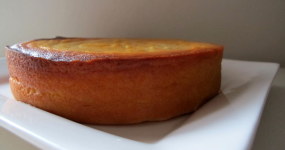 Kosher Whole Orange Cake posted on July 5, 2011
Kosher Whole Orange Cake posted on July 5, 2011 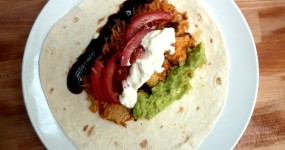 The quest for Mex part 2 – Feisty Chicken Burritos posted on December 21, 2010
The quest for Mex part 2 – Feisty Chicken Burritos posted on December 21, 2010  Vella Nero Coffee Couture, Sydney CBD posted on June 28, 2011
Vella Nero Coffee Couture, Sydney CBD posted on June 28, 2011 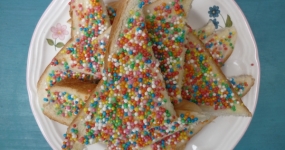 Fairy Bread posted on March 11, 2011
Fairy Bread posted on March 11, 2011 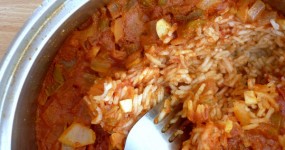 The quest for Mex part 1 – Mexican Red Rice posted on December 17, 2010
The quest for Mex part 1 – Mexican Red Rice posted on December 17, 2010 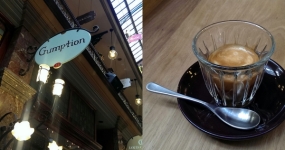 Gumption by Coffee Alchemy, Sydney CBD posted on December 13, 2013
Gumption by Coffee Alchemy, Sydney CBD posted on December 13, 2013
Disclaimer:
All opinions in this blog are mine, an everyday, real-life person. I do not accept payment for reviews and nor do I write sponsored posts. I do not endorse the content of the comments herein.

